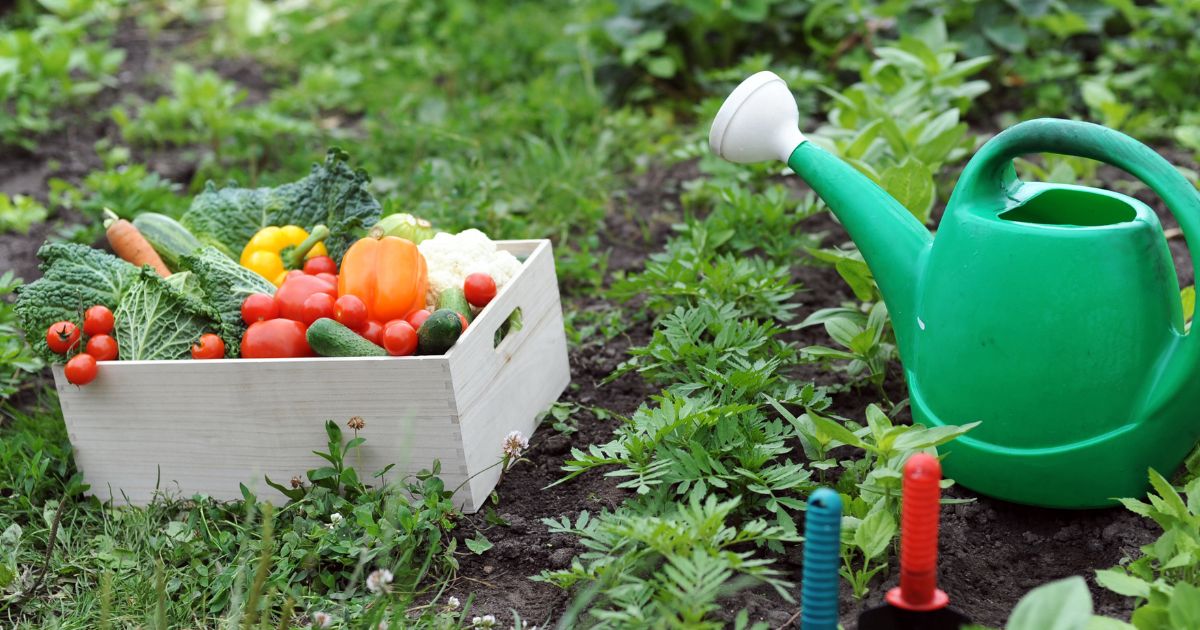
In many Kenyan towns and cities, the cost of living continues to stretch household budgets to the limit. A quick stop at the market today costs more than it did just a few months ago. For most urban families, buying basic vegetables like tomatoes, onions, sukuma wiki, and indigenous vegetables (also known as mboga za kienyeji) is a daily routine. Unfortunately, this is straining their wallets. What many don't realise is that the solution might be right outside their backdoor or on their balcony.
Kitchen gardens, once viewed as a rural or upcountry practice, are fast becoming a sustainable way for city dwellers to cut food costs, improve nutrition, and even earn a little extra income. Here is how much families can save by embracing kitchen gardens in the city.
For this article, we shall consider an average Kenyan family of 4: two working parents and two children in primary school. The father has a mid-level office job with a modest salary, while the mother runs a small business from home. Like many households in Nairobi and other towns, they rely on the local market for grocery shopping.
Here's what they typically spend in a week:
Total Weekly Groceries Cost comes to Ksh940
Over a month (4 weeks), the cost would look ike this:
Total Monthly Groceries Cost = Ksh3,760
In a full year, here is how the family spends on the above groceries:
Total Annual Groceries Cost = Ksh 45,120
If a family decided to start a kitchen garden by growing their own tomatoes, onions, and sukuma wiki at home—spending only Ksh5,000 per year on seedlings and basic equipment—they could save up to Ksh40,120 annually (about Ksh3,340 per month). Even with occasional purchases of indigenous vegetables, the reduction in market trips and expenses would still be substantial.
The first law of saving is that you should never leave your money idle; always ensure that wherever you store your money, it is earning you interest. These could be passive income vehicles such as money market funds (MMFs), SACCOs, or even treasury bills and bonds.
Let’s say you put your monthly savings of Ksh3,343 into an MMF with an annual compounding interest rate of 10%, meaning you earn about 0.83% of your principal every month. By the end of the first year, you will have saved a total of around Ksh40,120, and your savings will have compounded to Ksh42,006—giving you an extra Ksh1,886 in interest.
In the second year, your savings will reach Ksh80,232, while your interest will grow to Ksh8,180, bringing your total investment to Ksh88,412. If you remain consistent, your savings will compound to Ksh258,872 in 5 years—Ksh200,580 in contributions and Ksh58,292 in interest.
A kitchen garden immediately reduces grocery costs. Common staples like tomatoes, onions, sukuma wiki, and spinach are easy to grow even in small spaces. Once established, families can harvest them regularly instead of buying from the market. Over time, the savings add up—often running into thousands of shillings each month—freeing up money for other essentials such as school fees, electricity, or medical care.
Vegetable prices can swing drastically, especially during droughts, floods, or transport disruptions. In some seasons, prices may even double or triple. A kitchen garden cushions households from these shocks by providing a steady, reliable food source regardless of what’s happening in the market.
Homegrown vegetables are fresher and healthier than store-bought ones, which often spend days in transit and may be exposed to chemicals. With a kitchen garden, food is harvested just before cooking, retaining more nutrients. Families also have full control over how crops are grown—using natural compost and organic pest control—resulting in safer and more nutritious meals.
A thriving garden often produces more than a household can consume. Surplus vegetables can be sold to neighbours, local vendors, or in nearby markets. Even small weekly sales of sukuma wiki or tomatoes can bring in steady cash for minor household expenses or to reinvest in the garden. With time, this can grow into a small income-generating project.
A kitchen garden ensures that families can meet their nutritional needs even during tough economic times, job losses, or supply shortages. This self-reliance reduces dependence on external food sources and provides peace of mind knowing that basic meals are always available.
Gardening fosters a culture of responsibility, self-sufficiency, and care for the environment. Children learn where food comes from, develop healthy eating habits, and gain hands-on experience in sustainable living. Kitchen waste can also be composted and returned to the soil, creating a natural cycle of reuse.
Frequent trips to the market cost both money and time. For households far from reliable markets, this can be a major inconvenience. A kitchen garden puts fresh vegetables right at the doorstep—ready to be picked within seconds—saving transport costs and making meal preparation faster and easier, especially on busy days.
In today’s economy, every shilling counts. A kitchen garden may look like a small step, but it can save a family over Ksh45,000 a year—a boost that can ease school fees, rent, or daily expenses. Beyond the savings, it puts fresher, safer food on the table and teaches children the value of responsibility and sustainability. With just a little space and effort, any backyard, balcony, or verandah can become a green, money-saving corner. More than farming, kitchen gardens are an investment in health, resilience, and financial freedom—a harvest truly worth growing.
In some apartments, however, tenants may need to seek permission from their landlord to set up balcony or backyard kitchen gardens.
Join 1.5M Kenyans using Money254 to find better loans, savings accounts, and money tips today.

Money 254 is a new platform focused on helping you make more out of the money you have. We've created a simple, fast and secure way to find and compare financial products that best match your needs. All of the information shown is from products available at established financial institutions that our team of experts has tirelessly collected.

